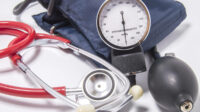By Guest Writer: Andrew T. Colucci, MD (Harvard)
The National Board of Medical Examiners (NBME) Subject Exams, or “shelf exams” as they are colloquially referred to, are a challenging but important milestone for all medical students in their clinical years. By the time that you sit for these examinations, you have likely already taken the USMLE® Step 1 and perhaps even Step 2CK exams. While each individual Shelf examination is certainly more concise and more focused than their behemoth USMLE Step exam counterparts, the Shelf exams still require an intelligent approach to preparation in order to succeed. With this in mind, let’s review several high yield tips and content topics that will help you to strategize for the Internal Medicine Shelf Exam.
Five High-Yield Content Topics
- Diagnostic workup and treatment of Acute Coronary Syndrome (ACS).
- Heart sounds, both physiologic and pathologic, and which physical exam maneuvers affect them.
- The classifications of asthma, including objective diagnostic criteria such as FEV, and the various stages of step-up therapy.
- Hepatitis B antigens – specifically, determining acute versus chronic infection, immunization versus infection, etc.
- Paraneoplastic syndromes.
Five High-Yield Internal Medicine Shelf Exam Tips
- While in the exam, start with the last 10 questions first. The latter questions require more thought, while previous questions are easier without as heavy analysis.
- Start studying early. This can be more difficult than it sounds! Often, the clinical years of medical school fly by at such a rapid and exhausting rate that is can be difficult to begin studying for each successive Shelf exam as you move between novel clinical rotations every 4-8 weeks. However, the IM Shelf has the widest breadth of testable material of all Shelf examinations, and therefore requires the largest amount of dedicated study time. Plan on spending more time on IM Shelf Prep than other Shelf Exams. This is particularly true for students who aren’t starting their Internal Medicine rotation until later in the MSIII year, following a significant gap of time between the completion of MSII/Step 1 and the IM Shelf exam.
- Equilibrium. Successfully balancing one’s clinical duties and didactics/book learning is perhaps one of the greatest challenges that medical students will face during their clinical years. It is important to realize that although much of the content on the IM Shelf is formed around topics already covered in your pre-clinical years and on Step 1, novel clinical questions will extend beyond the basic sciences and into the clinical realm (later to be examined on the USMLE Step 2CK). These topics are best learned on the wards from your patients, attendings, and residents. Also, be cognizant about how your final grade is calculated. Often, the clinical evaluations represent the largest portion of your final grade, and thus deserve at least an equivalent amount of time and effort as is placed into Shelf exam preparation.
- Utilize the correct resources. Like with all of medical school and the USMLE Step exams, the resources that you select to prepare for the IM Shelf are nearly as important as the time spent utilizing them. Fortunately, there is strong consensus regarding the best and most high yield review material for the IM Shelf. Few would disagree that the Medical Knowledge Self Assessment Program (MKSAP), currently in its 18th edition and produced by the American College of Physicians, remains an invaluable resource for measuring one’s knowledge in Internal Medicine. For a case-based review text, many students favor Case Files for Internal Medicine, given its long-standing reputation for readability and high-yield content. Finally, as with the USMLE Step examinations, an electronic IM shelf practice question bank (e.g. – BoardVitals, etc.) remains at the core for both content review and refinement of one’s test-taking strategy.
- The Long View. The knowledge that you gain during your clinical years in medical school will serve you well during your time as a resident, in addition to the decades of independent practice that follow. The principles tested on the Internal Medicine Shelf represent both the core knowledge that every physician must posses in addition to the largest scope of content, spanning across many specialties. Consider the time spent studying for this Shelf exam as representing an investment that will continue to pay dividends for your patients and your medical practice for years to come. By considering the long view and the incalculable importance of this material, you can channel this motivation into your study habits and drive to excel.




